Filter by
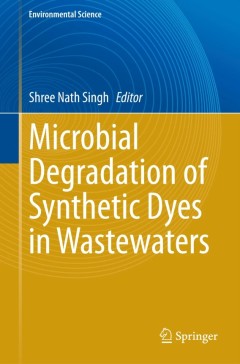
Microbial Degradation of Synthetic Dyes in Wastewaters
Today synthetic dyes are used extensively in the textile dyeing, paper printing, color photography, pharmaceuticals, food and drink, cosmetic and leather industries. As of now, over 100,000 different dyes are available, with an annual production of over 700,000 metric tons. These industries discharge an enormous amount of colored effluents into natural water bodies, with or without treatment. T…
- Edition
- 1
- ISBN/ISSN
- 978-3-319-10941-1
- Collation
- XIV, 367
- Series Title
- Environmental Science and Engineering
- Call Number
- -
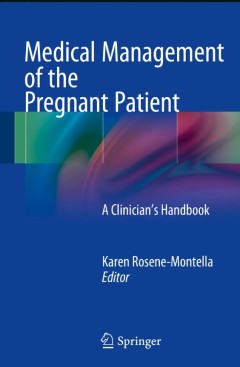
Medical Management of the Pregnant Patient
This protocol-based book uses algorithms to discuss preconception care, care during pregnancy, labor and delivery, and the link between postpartum and ongoing primary care. The need for an educated provider community to care for pregnant patients is enormous, and Medical Management of the Pregnant Patient provides a practical handbook that addresses all aspects of this topic. A brief overview o…
- Edition
- 1
- ISBN/ISSN
- 978-1-4614-1243-4
- Collation
- XI, 351
- Series Title
- -
- Call Number
- -
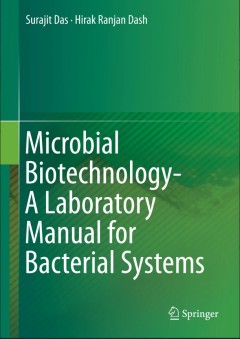
Microbial Biotechnology- A Laboratory Manual for Bacterial Systems
Microorganisms play an important role in the maintenance of the ecosystem structure and function. Bacteria constitute the major part of the microorganisms and possess tremendous potential in many important applications from environmental clean up to the drug discovery. Much advancement has been taken place in the field of research on bacterial systems. This book summarizes the experimental setu…
- Edition
- 1
- ISBN/ISSN
- 978-81-322-2094-7
- Collation
- XVI, 239
- Series Title
- -
- Call Number
- -
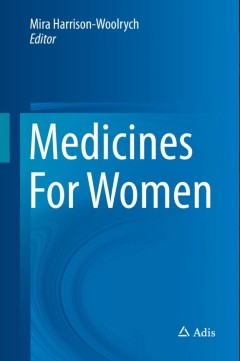
Medicines For Women
In this definitive new text, the major medicines, devices and vaccines used by women worldwide are brought together for the first time in a single volume. Written and edited by international experts with an evidence-based approach, the book offers a comprehensive summary of all the key areas of women’s medicines. In the first part, issues relating to female drug exposure and considerations fo…
- Edition
- 1
- ISBN/ISSN
- 978-3-319-12405-6
- Collation
- VIII, 627
- Series Title
- -
- Call Number
- -

Microbial Degradation of Synthetic Dyes in Wastewaters
Today synthetic dyes are used extensively in the textile dyeing, paper printing, color photography, pharmaceuticals, food and drink, cosmetic and leather industries. As of now, over 100,000 different dyes are available, with an annual production of over 700,000 metric tons. These industries discharge an enormous amount of colored effluents into natural water bodies, with or without treatment. T…
- Edition
- 1
- ISBN/ISSN
- 978-3-319-10941-1
- Collation
- XIV, 367
- Series Title
- Environmental Science and Engineering
- Call Number
- -

Microbial Biotechnology- A Laboratory Manual for Bacterial Systems
Microorganisms play an important role in the maintenance of the ecosystem structure and function. Bacteria constitute the major part of the microorganisms and possess tremendous potential in many important applications from environmental clean up to the drug discovery. Much advancement has been taken place in the field of research on bacterial systems. This book summarizes the experimental setu…
- Edition
- 1
- ISBN/ISSN
- 978-81-322-2094-7
- Collation
- XVI, 239
- Series Title
- -
- Call Number
- -

Medicines For Women
Mira Harrison-Woolrych is an Honorary Research Associate Professor at the Dunedin School of Medicine, University of Otago, New Zealand (NZ). She has worked on women’s medicines for over 20 years, having first trained in clinical obstetrics and gynaecology. Dr Harrison-Woolrych has significant experience in research, medicines regulation and pharmacovigilance in the UK and NZ. As Director of …
- Edition
- 1
- ISBN/ISSN
- 978-3-319-12405-6
- Collation
- -
- Series Title
- Medicines For Women
- Call Number
- VIII, 627
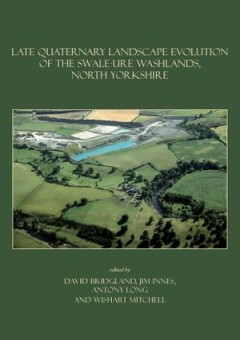
Late Quaternary landscape evolution of the Swale-Ure washlands, North Yorkshire
Reporting on a multi-disciplinary project this book seeks to reconstruct the history since the last glaciation of the area between and including the middle reaches of the Rivers Swale and Ure in Yorkshire. Included in this history are both natural changes, determined from studies of landforms and sediments, and human-induced changes, recorded in archaeological and geo-archaeological records. Th…
- Edition
- -
- ISBN/ISSN
- 978-1-84217-374-9
- Collation
- -
- Series Title
- -
- Call Number
- 551.793 094 284 LAT
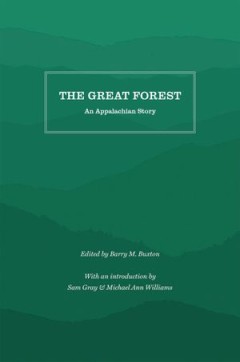
The Great Forest : An Appalachian Story
The very ancient Eastern forest of North America is characterized by an extraordinary variety of plants, animals, and human communities. Published in 1985 and edited by Barry M. Buxton (1st edition) and Sam Gray (2nd edition), contributors to A Great Forest: An Appalachian Story, include Sam Gray and Michael Ann Williams; Ann Rogers; Tyler Blethen and Curtis Wood; Ronald D. Eller; and Harley E.…
- Edition
- -
- ISBN/ISSN
- 9781469638454
- Collation
- -
- Series Title
- -
- Call Number
- 577.3 GRE
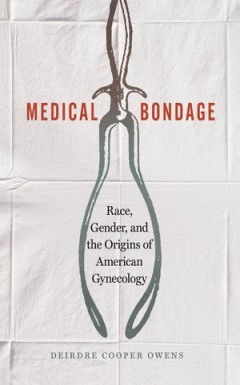
Medical Bondage : Race, Gender, and the Origins of American Gynecology
Medical Bondage explores how, in the nineteenth century, experimental surgeries on enslaved and laboring women enabled the rise of American gynecology as a medical specialty, and shaped our understanding of race. Merging women’s, medical, and social history, the book makes Black and Irish women's lives—not just their bodies—part of an origins story of American medicine (one that has large…
- Edition
- -
- ISBN/ISSN
- 9780820351353
- Collation
- -
- Series Title
- -
- Call Number
- -
 Computer Science, Information & General Works
Computer Science, Information & General Works  Philosophy & Psychology
Philosophy & Psychology  Religion
Religion  Social Sciences
Social Sciences  Language
Language  Pure Science
Pure Science  Applied Sciences
Applied Sciences  Art & Recreation
Art & Recreation  Literature
Literature  History & Geography
History & Geography